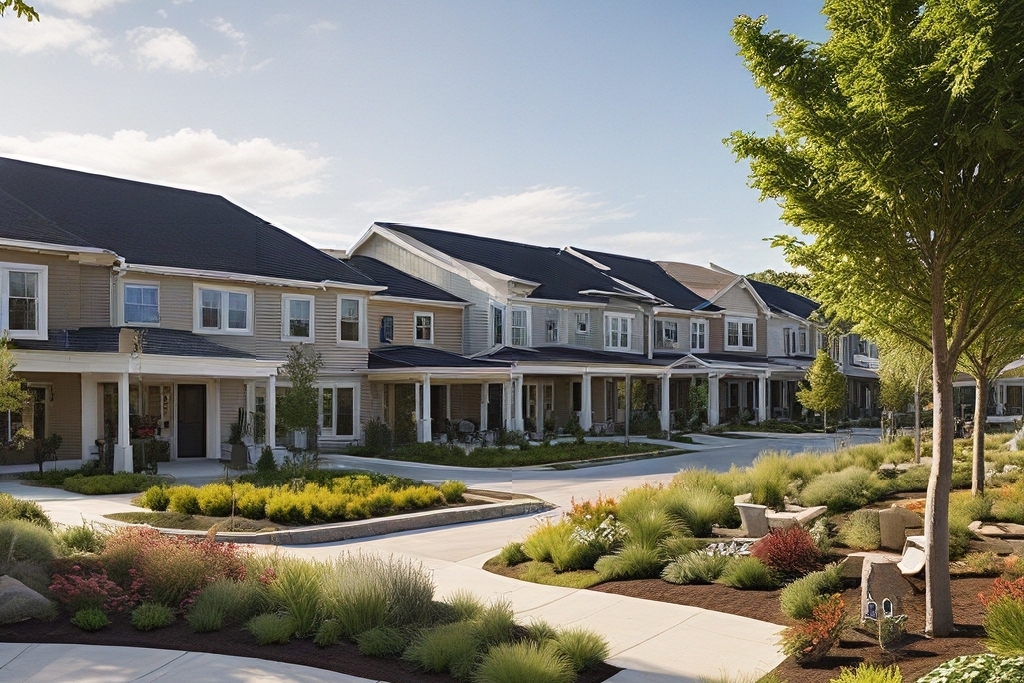Housing Options for Individuals 65 and Older: A Comprehensive Guide

As individuals reach the age of 65 and beyond, housing needs often change to accommodate new lifestyle preferences, health considerations, and financial circumstances. Understanding the various housing options available can help seniors and their families make informed decisions that enhance quality of life. This article explores the different types of housing solutions tailored for those aged 65 and older, highlighting the benefits and considerations of each option.
Independent Living Communities
Independent living communities are designed for seniors who are able to live independently but prefer the convenience and social opportunities these communities offer. These communities typically provide a range of amenities such as housekeeping, transportation, and recreational activities. Residents can enjoy a maintenance-free lifestyle while engaging in social events and activities that promote a sense of community and well-being.
Assisted Living Facilities
Assisted living facilities are ideal for seniors who require some assistance with daily activities such as bathing, dressing, and medication management. These facilities offer a combination of housing, personal care services, and health care. Residents have access to 24-hour support and can enjoy a variety of social and recreational activities. Assisted living facilities aim to provide a balance between independence and support, ensuring that residents receive the care they need while maintaining their dignity and autonomy.
Continuing Care Retirement Communities (CCRCs)
Continuing Care Retirement Communities (CCRCs) offer a continuum of care, allowing residents to transition from independent living to assisted living and skilled nursing care as their needs change. This type of community provides a long-term solution for seniors who want to stay in one place even as their health care needs evolve. CCRCs typically require an entrance fee and monthly payments, which cover housing, amenities, and health care services. The comprehensive nature of CCRCs makes them a popular choice for seniors seeking stability and peace of mind.
Nursing Homes
Nursing homes provide high-level medical care and assistance for seniors with significant health issues or disabilities. These facilities are staffed with licensed nurses and medical professionals who offer round-the-clock care. Nursing homes are equipped to handle complex medical needs and provide rehabilitation services, making them suitable for individuals recovering from surgery or illness. While nursing homes offer extensive medical support, they also focus on creating a comfortable and homelike environment for residents.
Age-Restricted Communities
Age-restricted communities, often referred to as 55+ communities, are residential areas that cater specifically to older adults. These communities offer a range of housing options, including single-family homes, townhouses, and apartments. Age-restricted communities are designed to promote an active and social lifestyle, with amenities such as clubhouses, fitness centers, and organized activities. These communities provide a vibrant and engaging environment for seniors who want to live among peers and enjoy a variety of recreational opportunities.
In-Home Care
For seniors who prefer to stay in their own homes, in-home care services offer a viable solution. In-home care providers offer assistance with daily activities, medical care, and companionship. This option allows seniors to maintain their independence and comfort while receiving the support they need. In-home care can be customized to meet individual needs, ranging from a few hours of assistance per week to full-time care. This flexibility makes in-home care an attractive option for many seniors and their families.
Senior Co-Housing
Senior co-housing is a relatively new concept that involves a group of seniors living together in a community where they share common spaces and resources. Each resident has a private living space, but communal areas such as kitchens, gardens, and recreational rooms are shared. This model promotes social interaction, mutual support, and a sense of community. Senior co-housing can be an affordable and enriching option for those who value collaboration and community living.
Factors to Consider
When choosing a housing option for individuals 65 and older, several factors should be taken into account:
– Health Needs: Assess the level of medical care and assistance required.
– Lifestyle Preferences: Consider the desired level of independence and social engagement.
– Financial Situation: Evaluate the costs associated with each housing option and available financial resources.
– Location: Proximity to family, friends, and essential services can impact the decision.
– Future Needs: Plan for potential changes in health and mobility over time.
By carefully considering these factors, seniors and their families can select a housing option that best meets their needs and enhances their quality of life.
Choosing the right housing option for individuals aged 65 and older is a crucial decision that can significantly impact their well-being and happiness. With a variety of options available, from independent living communities to in-home care, seniors can find a solution that aligns with their health needs, lifestyle preferences, and financial circumstances. By understanding the benefits and considerations of each housing type, seniors and their families can make informed choices that support a fulfilling and comfortable life in their golden years.



